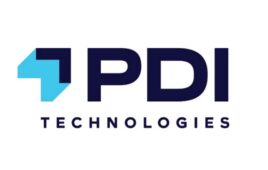Once considered a lower-price, lower-quality substitute for name brands, private-label products are being viewed positively by a majority of U.S. consumers, according to a new survey by The Nielsen Company.
About 72% of consumers believe store brands are good alternatives to name brands, while 62% of consumers say they consider store brands to be as good as name brands, up three points since 2005.
Private-label products account for more than $81 billion in the U.S., up 10.2% over the past year, according to Nielsen.
Nielsen’s survey indicates that an improved sense of quality is likely a driving factor for consumers’ positive attitude toward private label products. Sixty-three percent of consumers believe private-label brand quality is as good as name brands, while 33% of consumers tell Nielsen they consider some store brands are higher quality than name brands.
“While private-label products continue to follow the success of consumer packaged goods (CPG) manufacturers’ name-brand introductions, more CPG retailers are making private label a priority with messages on quality as strong as messages on value,” said Todd Hale, senior vice president, Consumer & Shopper Insights, The Nielsen Company.
Some consumers, however, view store brands less than positively. Sixteen percent of respondents maintain that store brands are not suitable when quality matters and 16% say store brands have “cheap-looking” packaging.
According to Nielsen’s survey, price and value are paramount.
Seventy-four percent of consumers believe it is important to get the best price on a product, and 67% of consumers agree that store brands usually provide “extremely good value” for the money while 35% are willing to pay the same or more for store brands if they like it.
Just under a quarter (24%) of consumers believe that name-brand products are worth the extra price.
“In today’s economy, consumers are looking for ways to save money and for many of them, that means taking a new look at private label products,” Hale said. “With more retailers offering satisfaction guarantees on private label purchases and even serving up blind taste testing and trial programs, consumers’ exposure to private label products has never been greater.”
Earlier analysis by Nielsen shows that an increase in private-label dollar sales is driven primarily by rising commodity and food prices, particularly in staple categories that are dominated by private label brands and not in unit sales.
A recent uptick in private-label unit sales suggests that budget-conscious consumers may be starting to shift away from some established brands in search of better deals. Private label represents 16% of dollar sales and 21% of unit sales, indicating that branded products still capture the lion’s share of product category sales.




